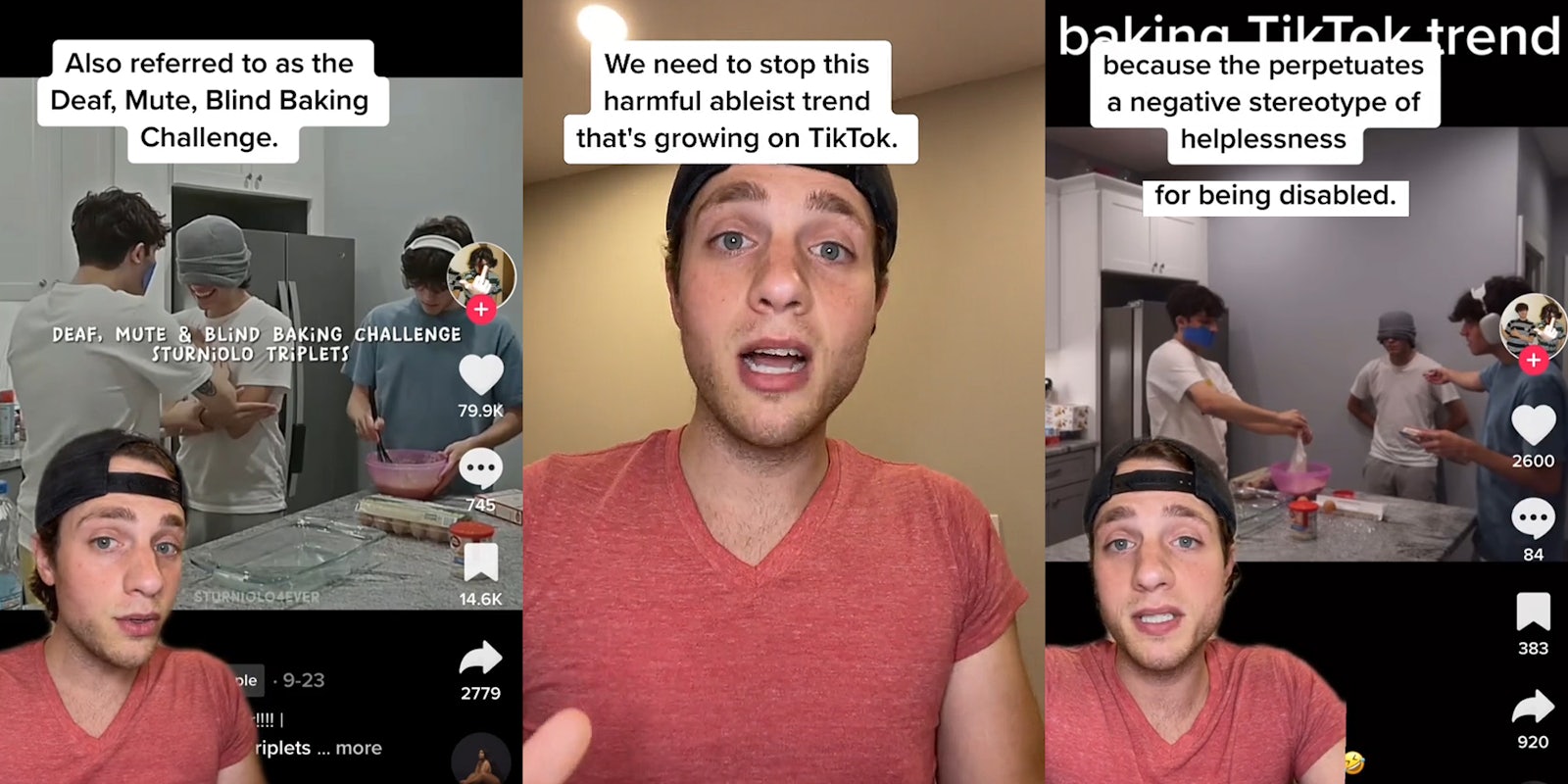
Problematic on TikTok is a weekly column that unpacks the troubling trends that are emerging on the popular platform and runs on Tuesdays in the Daily Dot’s web_crawlr newsletter. If you want to get this column a day before we publish it, subscribe to web_crawlr, where you’ll get the daily scoop of internet culture delivered straight to your inbox.
Let us crawl the web for you. Subscribe to web_crawlr here.

Analysis
There’s nothing the internet loves like a challenge: cinnamon, ALS ice bucket, devious licks, Kylie Jenner lip challenge. The list literally goes on.
Internet challenges are usually all in good fun. But TikTok’s latest challenge makes people with disabilities the brunt of the joke—meaning it’s harmful and not funny.
The “making a cake blind, deaf, and mute” challenge involves three people attempting to bake while one is blindfolded, another wears noise-canceling headphones, and the third person tapes their mouth shut. The trend seems to have originated from a video posted by @eemmmmuuhhh in late September and currently has almost 10 million views.
In iterations of the trend, TikTokers are seen laughing, bumping into each other, yelling, and using outsized gestures to communicate as they attempt to bake a cake.
A TikTok from @techowlpa, an account that identifies itself as affiliated with Temple University’s Institute on Disabilities, calls out the trend for being “harmful” and “ableist.”
“This trend is so harmful because it perpetuates the negative stereotype of helplessness for being disabled,” a man in @techowlpa’s video says. “These gross overreactions to garner views is just discrediting the hard work that many people with disabilities have had to do to learn how to cook.”
Why it matters
Making fun of people with disabilities isn’t funny. It’s hurtful, invalidating, and infantilizing.
The baking while “blind, deaf, and mute” trend would have viewers believe that people who are blind, deaf, and/or mute either cannot cook or have extreme difficulty doing so.
But that’s not true. There are kitchen modifications and accessible equipment and recipe formats created for disabled people. And even though cooking for someone who has disabilities might look different, being able to cook is a really important skill for those with disabilities because it encourages independence—the exact opposite of helplessness.


